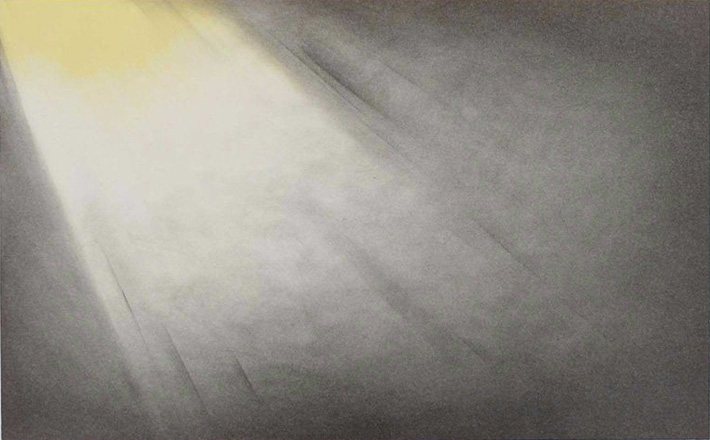Commentary on Isaiah 58:1-9a [9b-12]
Among the many things darkness may symbolize in the Bible, one of them is the silence of God.
While lament psalms typically possess a movement from lament toward thanksgiving, Psalm 88 is unique because it solely contains complaint. It begins and ends in darkness, and culminates in the psalmist admitting, “The darkness is my closest friend” (Psalm 88:18, NIV).
In the absence of God answering prayer, darkness is his only companion. Darkness pervades over the audience Isaiah addresses in Isaiah 58 for the very same reason. Their prayers have gone unanswered; God has been silent. Darkness is their only friend.
The historical backdrop for Isaiah 58 is likely the period of fasting that followed the exile. Zechariah 7:3-5 indicates that Israel fasted on the fifth and seventh months for seventy years following the destruction of Jerusalem. For seventy years Israel would fast at least twice a year commemorating the fact that they had lost their home and their king. They fasted and prayed seeking a response, an answer to their troubles.
This scenario matches the people’s outcry in 58:3, “‘Why have we fasted,’ they say, ‘and you have not seen it? Why have we humbled ourselves, and you have not noticed?’” The people are clearly fasting in order for their prayers to be answered. The city of Jerusalem seems to be in ruins (58:12) and thus an exilic, or possibly postexilic situation is likely.
The people are desperately seeking justice from God. In Isaiah 58:2 God observes that “they ask of me righteous judgments.” This term “righteous judgments” is a form of the words “justice” (mispat) and “righteousness” (tsedaqah), which feature prominently in the book of Isaiah.
Ever since Isaiah 40:27 Israel has been complaining, “My way is hidden from the Lord, and my right (mispat) is disregarded by my God.” Israel believes a great injustice has been done to them by Babylon. They held been held captive by foreign oppressors. Their city is in ruins. Their temple is destroyed. They have been abandoned by God.
Israel complains that God has deprived them of justice. God responds by demanding Israel to stop depriving those around them of justice and righteousness! Even though Israel has been attentive to the ritual ordinances of the Law, they have completely neglected the ethical demands of it. The people believe they are the victims, when in fact they are the victimizers.
They approach God in prayer as if they practice justice and righteousness: “Yet day after day they seek me and delight to know my ways, as if they were a nation that practiced righteousness (tsedaqah) and did not forsake the ordinance (mispat) of their God”(Isaiah 58:2). But clearly they are not such a people.
Although they believe they are seeking God through their fasts, they forget that Isaiah had earlier clearly instructed that they were to “seek justice (mispat)), rescue the oppressed, defend the orphan, plead for the widow” (Isaiah 1:17). To truly “seek the LORD” is to seek justice and righteousness for the poor and oppressed. They are willing to entrust their rituals and prayers to God, but not extend their faith commitment to the social and economic spheres of their lives. Because of their social and economic sins they remain in darkness.
To cease from oppressing others is not enough. To be a people of justice and righteousness means to be actively engaged in social and economic reform. Israel is to be an agent of liberation, generosity, and compassion for the poor and oppressed (58:6-7). Isaiah urges Israel, “pour yourself out for the hungry and satisfy the desire of the afflicted”(58:10, RSV). The phrase “pour yourself,” literally means to “pour out your soul.”
This is similar to the expression “humble oneself” or “afflict oneself” in 58:3, which there refers to fasting. By the use of this language Isaiah is calling for a full transformation of the soul of the community. Fasting, when done properly, is not a means of earning favor from God; it is a means of spiritual transformation.
Fasting is an attempt to align one’s priorities to the will of God. Isaiah is now calling for a fast, not from food, but from affluence, indifference, and privilege so that the community of faith might live in harmony with God, who “dwell[s] in the high and holy place, and also with those who are contrite and humble in spirit”(Isaiah 57:15).
It is clear that the salvation God promises is conditioned upon the people’s response. All the promises of Isaiah 58:8-9 are introduced by the word “then”:
Then your light shall break forth like the dawn, and your healing shall spring up quickly.
Then you shall call, and the LORD will answer; you shall cry for help, and he will say, Here I am.
The promise in 58:10 comes in the form of an “If, then” clause:
If you offer your food to the hungry and satisfy the needs of the afflicted, then your light shall rise in the darkness and your gloom be like the noonday.
This conditional emphasis is an extension of the fundamental principle expressed earlier in 56:1: “Maintain justice (mispat), and do what is right (tsedaqah), for soon my salvation will come, and my deliverance be revealed.”
Isaiah 58 verses 8 and 10 promise that light will break forth and healing will appear. In the book of Isaiah, light is a symbol for salvation:
“The people who walked in darkness have seen a great light; those who lived in a land of deep darkness — on them light has shined”(Isaiah 9:2).
“Arise, shine; for your light has come, and the glory of the Lord has risen upon you. For darkness shall cover the earth, and thick darkness the peoples; but the Lord will arise upon you, and his glory will appear over you”(Isaiah 60:1-2).
Based upon these passages, what is this light about to dawn? It is God’s eschatological promise of salvation. It is the goal, the end, the consummation of his kingdom promises. The light is none other than the Lord himself, who comes to liberate his people from darkness and establish a just and righteous kingdom.
Those who pour out themselves for the sake of justice and righteousness need not fear darkness or abandonment. The opposite is the case. It is to them the light of God’s salvation will shine.


February 9, 2014